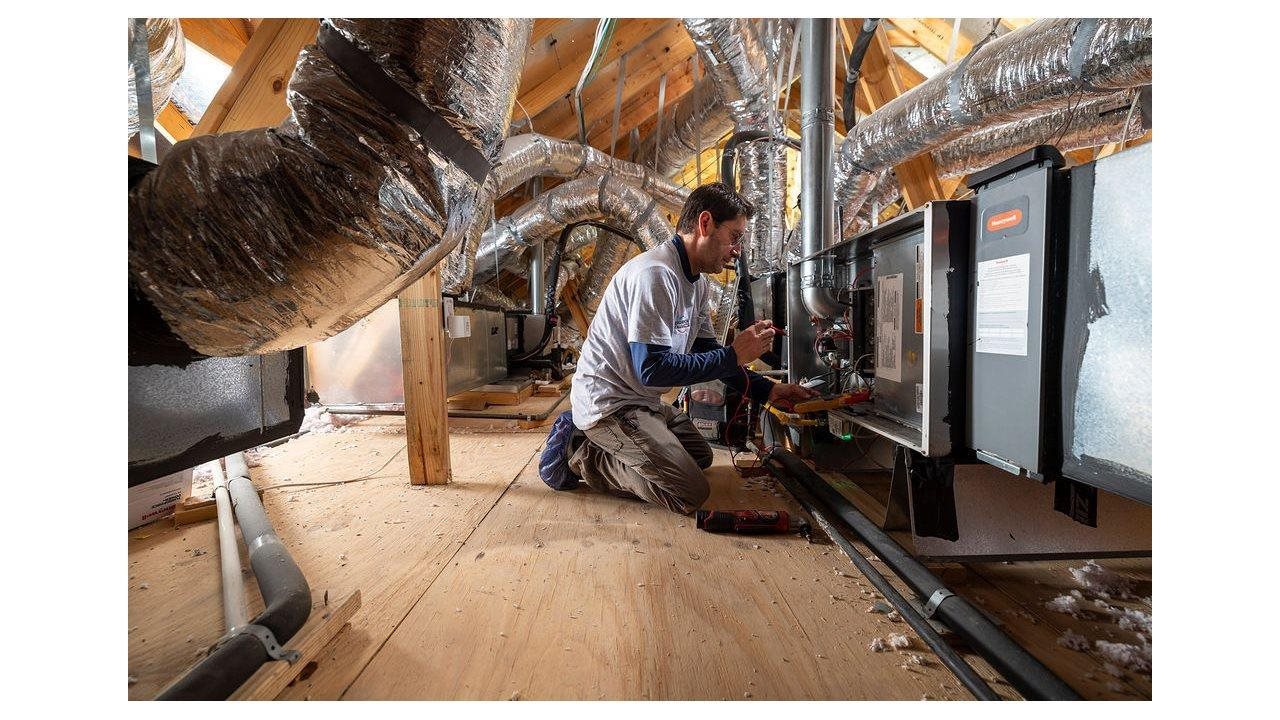How clean is your home's air? In tropical climates like Florida, your indoor air quality can be compromised because of challenges like high humidity, allergens and mold growth. Because poor air quality can cause asthma or allergy symptoms, rashes, eye irritation, sore throats, nosebleeds and other health problems, improving and maintaining good indoor air is critical to creating a healthy and comfortable environment and keeping you and your family healthy.
Stephen K. Denny, a leading HVAC contractor in South Florida, knows how important it is to have a home with fresh, healthy, clean air that is free of toxins. To help your family breathe easier and protect your health, the company offers five expert tips to prevent indoor air issues and improve your indoor air quality.
1. Keep humidity in check
Moisture is a sneaky source of poor indoor air quality. Excess indoor moisture can create the perfect conditions for mold and dust mites to flourish, which can trigger or worsen allergies and asthma.
For Floridians, combating moisture can be difficult because of the coastal, warm region's humidity. Consider installing a whole-home dehumidifier to keep your home's humidity levels under 50% to prevent biological growth buildup.
2. Check for harmful gases
From carbon monoxide to volatile organic compounds, many types of harmful gases can sneak into your house and pollute your indoor air quality, putting your and your household's health at risk. One gas you may not be aware of, but that can have long-term effects on your health, is radon.
Radon is a colorless, odorless and radioactive gas produced from uranium in soil, rock and water and can be found in homes, offices and schools. Radon gas can enter through cracks, tiles, your water supply, gaps in pipes and soil. According to the U.S. Environmental Protection Agency (EPA), radon is the leading cause of lung cancer among nonsmokers. Consider getting a radon test kit or scheduling a professional assessment.
3. Control sources of pollutants
Airborne pollutants like dust, pollen, pet dander, mold spores, and even bacteria and viruses contaminate your indoor air and can aggravate allergies and asthma symptoms, especially in children.
To ensure your home is pollutant-free, use a whole-home air purifier to work in tandem with your HVAC system to capture and remove these and other harmful particles. Many air purifiers use High-Efficiency Particulate Air (HEPA) filters, which can trap particles as small as 0.3 microns with a 99.97% efficiency rate.
4. Combat mold and bacteria
You may have mold and bacteria already living in your home in a place you might not suspect: your HVAC system. In humid areas like Florida, mold can grow on its damp surfaces. To keep your HVAC system clean and running well and prevent mold and bacteria, consider installing ultraviolet (UV) lights in your ductwork.
UV lights can be installed near the HVAC's evaporator coil to destroy bacteria, viruses and mold spores, improving your system's efficiency and reducing respiratory irritation and the risk of illness.
5. Schedule regular HVAC maintenance
Your HVAC is the foundation for clean indoor air. Over time, dust, debris and mold can accumulate in your system, making it run less efficiently and negatively impacting your air quality. This is especially important in Florida because the salt air on the coast can corrode your HVAC system, introducing more harmful particles into your home.
Make sure to schedule regular HVAC inspections and maintenance to keep your system clean and working properly so you can breathe in clean air year-round. During an inspection, a professional can identify clogged filters, dirty coils and mold growth and address these issues to improve airflow and protect your air quality.
Protect your health and create a safe and inviting home
Improving indoor air quality can help you create a comfortable and safe environment that supports your health for years to come. Using these five tips, you can address existing air quality issues and prevent future problems.
If you need help installing indoor air quality products or maintaining your HVAC system, consider talking with an HVAC specialist at Stephen K. Denny. For over three decades, the HVAC contractor has provided comprehensive HVAC services to residents and businesses in Jupiter and the surrounding communities. To learn more, visit StephenKDenny.com.



